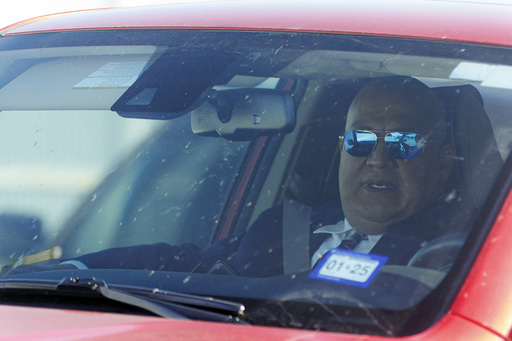A Texas judge has decided to uphold the criminal charges against the former Uvalde schools police chief, Pete Arredondo, linked to the delayed response to the tragic Robb Elementary School shooting in 2022. During the court session in Uvalde, Judge Sid Harle dismissed Arredondo’s argument that he was wrongly charged, asserting that the sole blame lay with the shooter. The horrific incident claimed the lives of nineteen children and two teachers on May 24, 2022.
The judge has scheduled a trial date for October 20, 2025. Meanwhile, the attorney representing Adrian Gonzales, Arredondo’s co-defendant and former Uvalde schools police officer, indicated plans to request a change of venue for the trial, citing concerns that a fair trial could not be obtained in Uvalde, a town with a small, tightly-knit community of fewer than 25,000 residents located approximately 85 miles west of San Antonio. “Everyone knows one another in Uvalde,” Gonzales’s lawyer, Nico LaHood, commented during the hearing.
Both Arredondo and Gonzales were present in the courtroom as discussions unfolded. In the aftermath of the shooting, nearly 400 law enforcement personnel arrived at the school yet failed to engage the shooter for over 70 minutes. Arredondo and Gonzales are the only officers facing charges regarding the response, which has sparked backlash from some families of the victims. The two former officers have entered not guilty pleas to several counts related to child endangerment, each carrying a potential two-year prison sentence. Notably, Gonzales has not sought to dismiss his charges.
Federal probes into the shooting identified Arredondo as the incident commander. However, he contends that the state police should have established a command post outside the school to assume control of the situation. Gonzales, who was among the first responders, is accused of failing to follow his training by not confronting the shooter immediately, even while he was fully aware of gunfire in the hallway.
Arredondo maintains that he is being used as a scapegoat for the inadequate police response, with the indictment alleging he deviated from active shooter protocols and made choices that hampered timely action while the assailant was actively targeting the victims. The prosecution claims he delayed confronting the shooter by ordering officers to evacuate a hallway in anticipation of a SWAT team, evacuating students from other areas first, and attempting negotiations with the assailant even as victims suffered inside the classroom.
Arredondo’s legal team argues that the real threat stemmed not from him, but solely from the shooter, asserting that he aimed to protect the lives of the children present. They have expressed concerns that prosecuting him could set a precedent endangering future law enforcement practices. “He did not put those children in the shooter’s path,” stated Matthew Hefti, Arredondo’s attorney.
In response, Uvalde County prosecutors argued that Arredondo’s actions exhibited recklessness, claiming he was fully aware of the peril the children were in. Assistant district attorney Bill Turner remarked, “The state has alleged he is absolutely aware of the danger to the children.”
Family members of the victims, such as Jesse Rizo, whose niece, 9-year-old Jacklyn Cazares, was among those killed, attended the hearing, expressing frustration at the defense’s attempts to dismiss the charges. Rizo described the ongoing wait for a trial as agonizing and expressed skepticism about whether a change of venue would benefit the defense. “The longer it takes, the longer the agony,” he stated, pointing out that a trial outside of Uvalde might yield a better chance for accountability.
The tragic events at Robb Elementary School are considered among the deadliest school shootings in the U.S., and the handling of the situation by law enforcement has been heavily criticized. A significant number of federal and state agents, including nearly 150 Border Patrol agents and 91 state police officers, rushed to the scene, with many standing idle in the hallway while desperate students and teachers called 911. Over an hour passed before officers entered the classroom and eliminated the threat posed by the shooter. Investigations have since revealed systemic failures in training, communication, leadership, and decision-making among law enforcement, raising serious concerns about whether officers prioritized personal safety over the lives of children and educators during the crisis. In the aftermath, numerous families have initiated both state and federal lawsuits.


